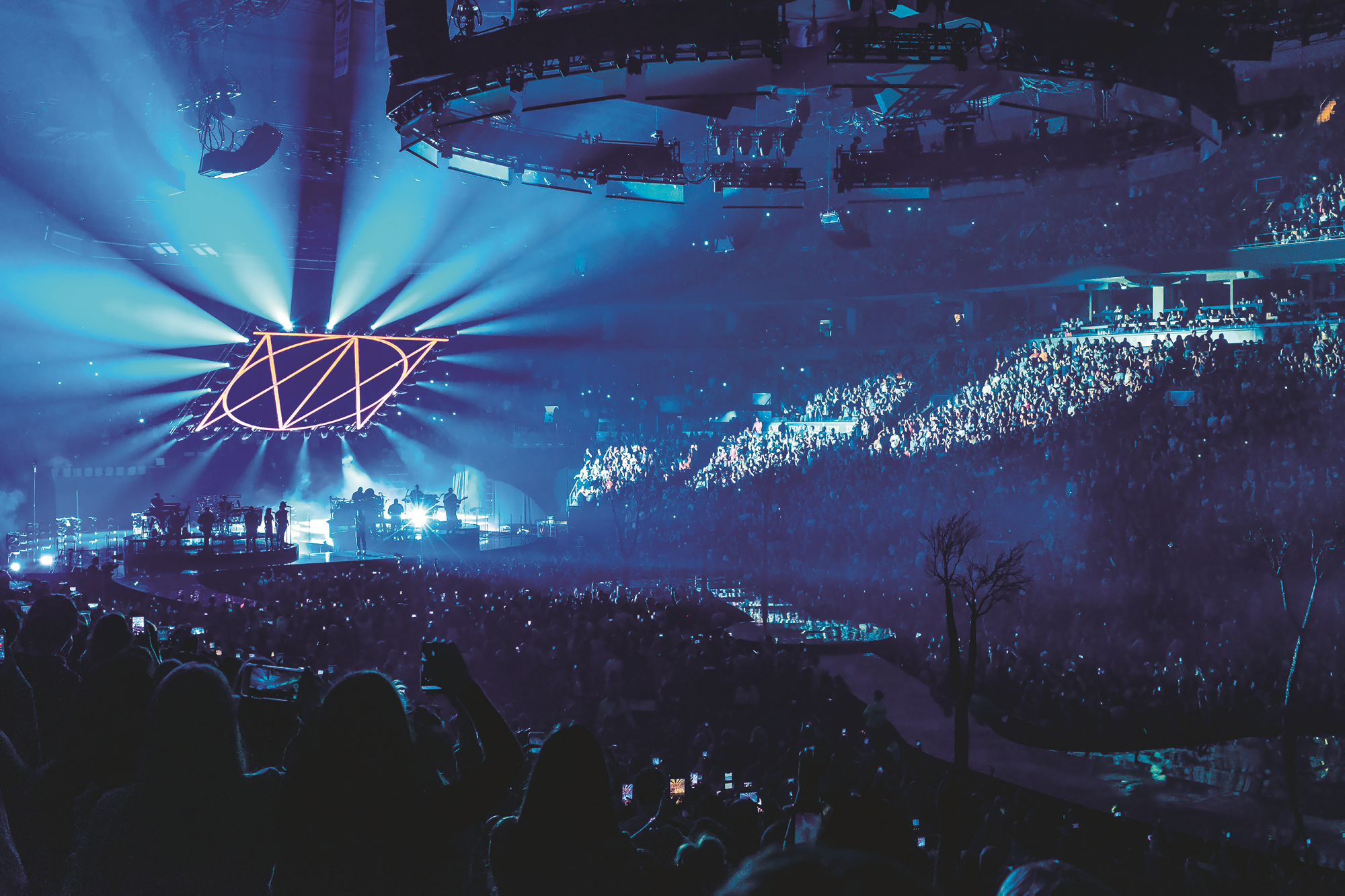Features
Guest Post: Behind-The-Scenes Event Workers Forgotten By Congressional Support

GP Images/Getty Images – Man of the Woods:
Nick Whitehouse is co-founder of design studio Fireplay, known for cutting-edge effects and counting major artists among its clients, including Justin Timberlake, pictured here during his 2018 “Man of the Woods” tour.
In this business, if you don’t notice us, that means we’re doing our jobs well. At Fireplay, we design and produce live shows, events and tours that fans will never forget – productions that are so captivating you lose yourself in them. We work to put on unforgettable performances that are so seamless it would never occur to you that hundreds of people are working in the background to coordinate logistics, address obstacles, and solve problems to ensure each and every show runs flawlessly. And we’ve done that, successfully, for some of the biggest names in the business.
But since the pandemic caused most live events to go on hold in March 2020, our work has stopped. It’s like we’re frozen in time – every day feels like a fight for survival. Many of my friends and colleagues have been forced to pick up odd jobs just to support our families, but those opportunities are few and far between.
The impact is staggering when you take a look at the numbers: 95% of events were canceled in 2020. 77% of workers have lost 100% of their incomes. 62% of American artists across all disciplines are now unemployed – and that means their crew is too.
Think about if that was your friend, or family member, who was out of work for what may very well be over a year with a barely visible light at the end of the tunnel. These are real people who are hurting, and there is essentially no other industry in which the toll is quite so devastating.
At our base in Tennessee, we’ve managed to keep the lights on by producing virtual crowd technology used by artists, performers, and athletes worldwide so they can see the fans online they’d otherwise see in person. But the fact we are still standing doesn’t mean we’re thriving.
Our industry attracts some of the most creative minds in the world. They’re practically alchemists when it comes to making the magic happen on stage, but we’re at risk of losing them.

Twitter.com/nw_fireplay – Nick Whitehouse

Twitter.com/nw_fireplay – Nick Whitehouse
We had 30 scheduled tours at Fireplay in 2020, and not a single one was able to take place. Some have been rescheduled to this new year and some are being pushed even further out to 2022. This not only hurts us and our direct work but it also negatively impacts all of the industries dependent on our shows.
One arena tour uses roughly 100 hotel rooms a night in whatever town that tour has landed – in 2019, our small company alone spent $2 million on travel. If you take into account all the people working the shows and the people attending them, when our industry dries up others do, too. It hurts the restaurants, hotels, and shops in the locations we visit, not to mention the other companies, services, vendors and gig workers who rely on live entertainment: touring crew, musicians, dancers, creative directors and studios, equipment vendors and manufacturers, trucking, bussing, staging, stagehands, fencing, caterers, security, cleaning services … the list goes on.
Our people need relief until they can get back to work. To help one of the hardest hit industries, Washington must do more than what was passed in the latest stimulus package in December, which only extends some support for workers through March, and does nothing to meet the uniquely devastating impacts facing live events personnel.
We may have saved our stages, but we haven’t saved the individual workers who help those stages come to life.
Normally, those of us behind the scenes of live events don’t like to take the spotlight. But we can’t sit idly as our workers continue to be overlooked by our federal government. If we don’t save the actual workers who bring live events to life, we risk damaging the entire industry forever.